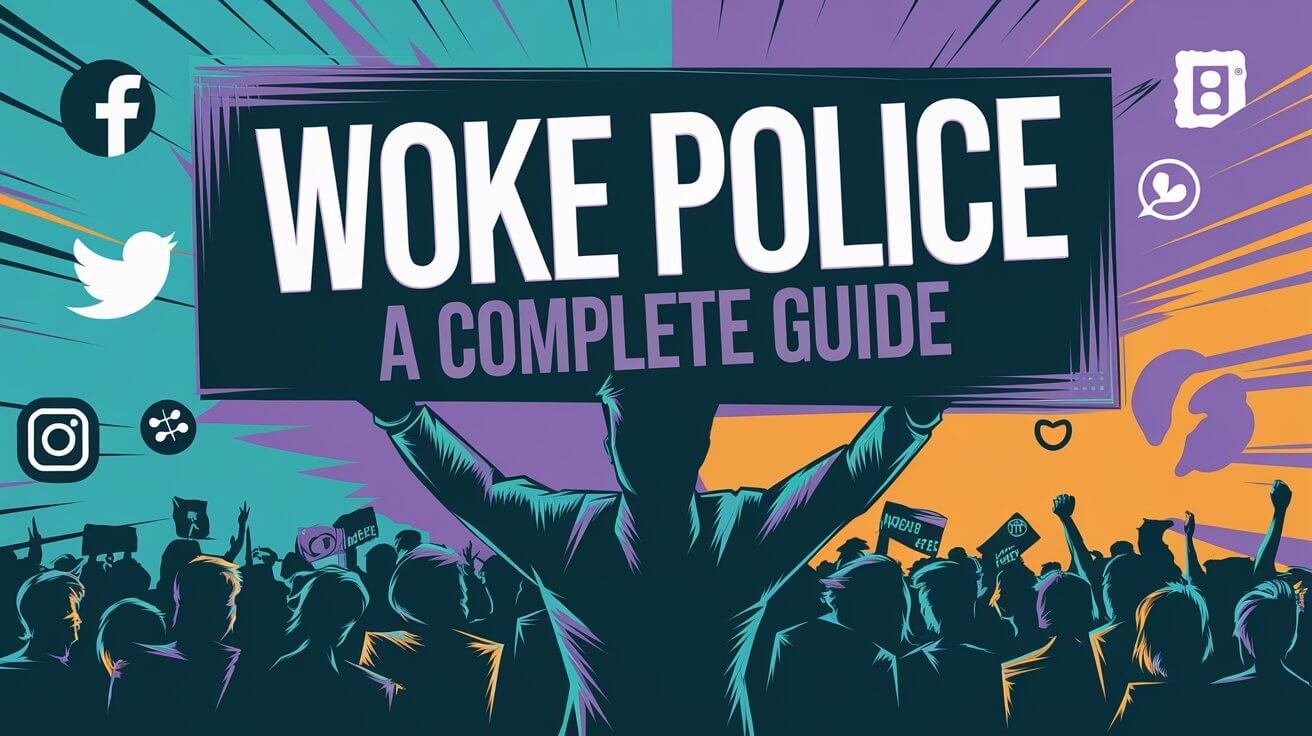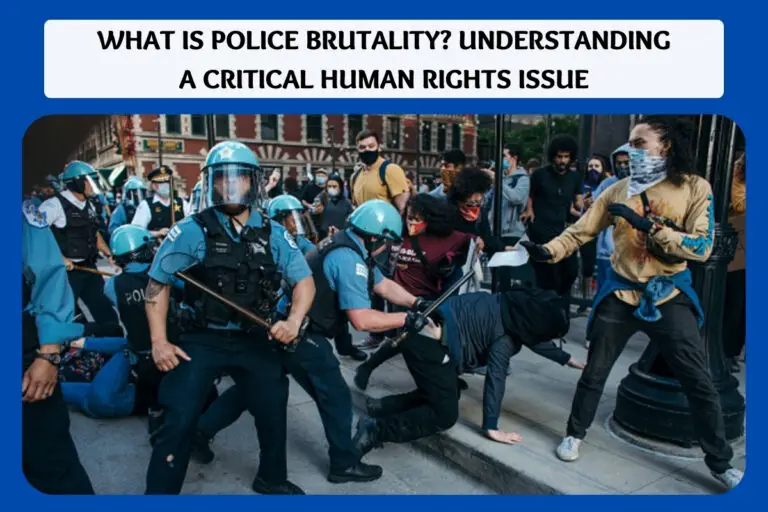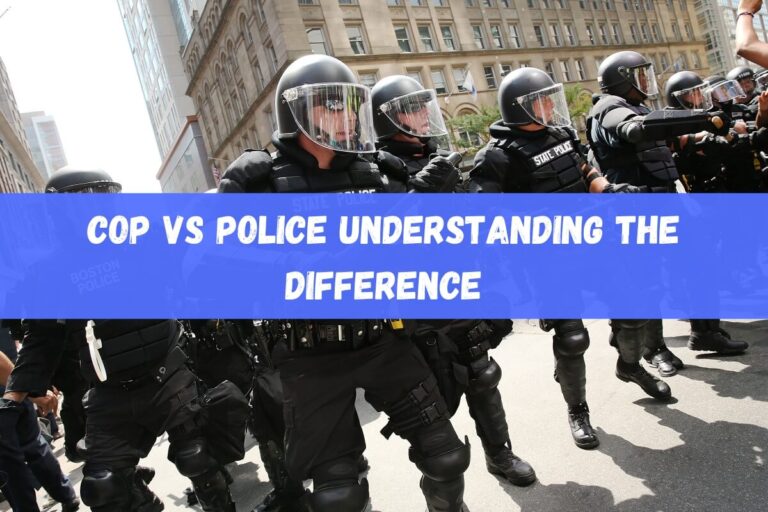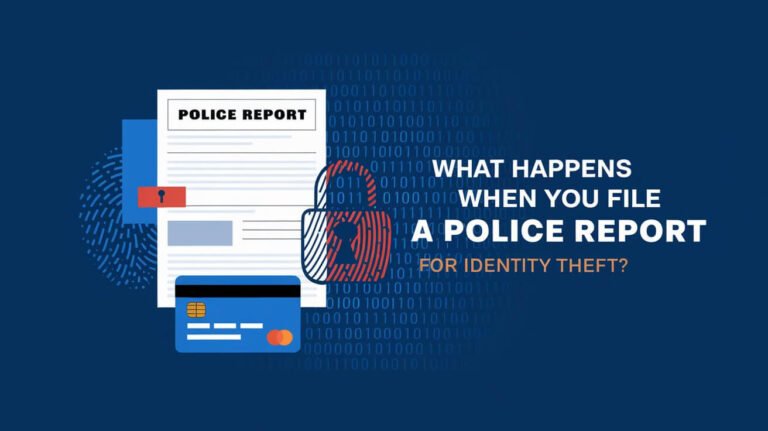What Does The Term Woke Police Mean? A complete guide

The term “woke police” is a hot topic in today’s world. It sparks a lot of debate and controversy. But what does it really mean, and how did it start? Let’s explore the origins and what it implies, shedding light on a complex issue.
This issue touches on social justice, equality, and how we see these concepts. It’s a story that challenges our views on fairness and equality.
Key Takeaways
- The term “woke” has its roots in African American culture, originally describing those alert to racial injustice.
- The mainstream adoption of “woke” has led to a dilution of its authentic meaning and purpose.
- The “woke police” label is used to criticize those who actively enforce progressive ideals and political correctness.
- Debates around the “woke police” concept reflect the tensions between social justice and perceived censorship of speech.
- Understanding the evolution of “woke” is crucial in navigating the ongoing discussions surrounding identity politics and cultural change.
Origins and Evolution of the Term Woke
The term “woke” comes from African American culture and the fight for social justice awareness. It started in the early to mid-1900s. Back then, it meant being aware of racial prejudice.
Historical Context in African American Culture
The first known use of “woke” was in 1938. It was in a song called “Scottsboro Boys” by Lead Belly. He sang about staying alert to racial injustices faced by the Scottsboro Boys.
Transformation Through Social Movements
Over time, “woke” took on a new meaning. It became about more than just racial issues. It also included sexism, homophobia, and rights for all.
In the 2010s, “stay woke” became a key phrase. It was used during the Black Lives Matter movement. It encouraged people to fight for social justice.
By 2017, “woke” was in the Oxford English Dictionary. This showed its growing importance in cultural evolution and social discourse. But lately, some on the right have used it to attack progressive ideas.
Black Lives Matter Movement and Woke Consciousness
The Black Lives Matter movement made “woke” famous in 2014. This was during the Ferguson protests after Michael Brown’s death. Activists used “woke” to highlight police brutality and systemic racism.
The movement linked “woke” to social justice issues. It became a call for action against racism and oppression. Hashtags like #staywoke and #blacklivesmatter spread in 2012, after Trayvon Martin’s death.
In the years that followed, “woke” took on new meanings. The #OscarsSoWhite campaign in 2015-2016 showed the need for diversity in Hollywood. This showed growing demands for representation and fairness in different areas.
But “woke” has also faced criticism. Some say it’s been twisted against the activists who started it. The debate over “wokeness” continues, with many still discussing its meaning and impact.
The Rise of Anti-Woke Sentiment
The term “woke” has changed a lot in recent years. It started as a call for social justice and awareness. But now, it’s often seen as a negative term, mainly by conservatives and some centrists.
They use it to criticize what they see as too much political correctness and liberal ideas.
Political Weaponization of the Term
Now, “woke” is used as a political tool. Politicians like Florida Governor Ron DeSantis use “anti-woke” to show they stand for traditional values. They see “wokeness” as a threat to society.
This has led to big debates on education, corporate policies, and public talks. “Wokeness” is seen as a dangerous idea that challenges our norms.
Conservative Response and Rhetoric
The conservative pushback against “wokeness” is strong. A 2023 USA Today/Ipsos poll found interesting views on “woke.”
56% of Americans see “woke” as knowing about social injustices. But 39% think it means being too careful with words. And 56% of Republicans see it as a way to limit free speech and control what we say.
| Perspective | Definition of “Woke” | Percentage |
|---|---|---|
| Americans | Being informed about social injustices | 56% |
| Americans | Being overly politically correct and policing words | 39% |
| Republicans | Negative view of “woke” as a tool to suppress free speech and control what others say | 56% |
The rise of anti-woke feelings has changed our politics and culture. It’s led to many debates and strong opinions on social justice, identity politics, and what’s okay to say.
What Does The Term Woke Police Mean
The term “woke police” refers to those who enforce strict political correctness. Critics say this harms free speech and leads to self-censorship. Supporters believe it fights discrimination and promotes inclusivity.
The term “woke” has become very popular, thanks to its conservative redefinition. Google Trends shows a spike in searches for “woke” in March 2023. This shows how much people are talking about it.
Woke advocates want changes like defunding the police and cashless bail. They aim to fix systemic inequalities and ensure fair treatment. For example, defunding the police could lead to more mental health services, reducing harm during police interactions.
Cashless bail is another reform. It helps the poor by letting judges decide on release based on allegations, not money. This ensures fairness, regardless of wealth.
On the other hand, critics see these reforms as social justice enforcement and “language policing.” They believe these actions stifle free speech and create a culture of fear. This debate shows the deep divide on wokeness in society.
| Woke Police Reforms | Criticisms of Woke Policing |
|---|---|
| Defunding the police Cashless bail Income-based penalty system | Stifles free speech Leads to self-censorship Excessive language policing |
Cultural Impact on Modern Society
The term “woke” has become very important in recent years. Social media has helped spread it far and wide. The #StayWoke hashtag, popular on Twitter, is a big hit with Millennials and Gen Z. They use it to show they care about social issues and are open-minded.
There’s a big difference in how people from different ages see “woke.” Young people see it as a sign of being aware and caring. But older folks might see it as a way to push political views or upset traditional ways of thinking. This difference has made the idea of social media influence, generational perspectives, and the cultural shift it brings even more complex.
Social Media’s Role in Spreading the Term
Social media, like Twitter, has helped “woke” spread fast. The #StayWoke hashtag started after police killed Black people in the U.S. It became a call to action for those fighting for justice and equality. This online activism has made “wokeness” a common topic in our conversations.
Generation Z and Millennial Perspectives
- Younger generations, like Millennials and Gen Z, see “woke” as a way to show they care and are open to change.
- They use it to show they’re ready to fight against unfair systems and support those who are often ignored.
- But, this view is different from older generations. They might see “woke” as a tool for politics or a challenge to old ways.
| Generation | Perspective on “Woke” |
|---|---|
| Millennials and Gen Z | See “woke” as a sign of being aware and caring |
| Older Generations | May see “woke” as a political tool or a threat to old ways |
The impact of “woke” keeps changing, with social media playing a big part. It has caused a divide between ages in how it’s seen and used. The debate around “woke” shows the ongoing fight for justice and how society is changing.
Identity Politics and Social Justice
The term “woke” is closely linked with identity politics and social justice. It covers many topics, like racial equality, LGBTQ+ rights, and gender equity. Supporters see “wokeness” as key to fixing systemic inequalities. Critics, though, say it leads to divisive politics that splits society.
Debates on “woke” show how complex identity politics and social justice are. Some see pushing for more representation and inclusivity as vital for fairness. Others think focusing too much on identity issues hides the need for economic and social fixes.
The term “woke” has been taken up by many, making things confusing. As identity politics and social equity become more debated diversity issues, the “woke” movement’s true goals are lost. This has changed the focus from fighting systemic injustices to just arguing.
| Perspective | Key Points |
|---|---|
| Supporters of “Wokeness” | Argue that “wokeness” is necessary to address deep-seated inequalities and systemic discrimination Believe that increased awareness and action on issues like racial justice, LGBTQ+ rights, and gender equity are crucial for a more inclusive and equitable society Contend that “woke” movements have played a vital role in amplifying the voices of marginalized communities |
| Critics of “Wokeness” | Argue that “wokeness” promotes divisive identity-based politics that can further polarize society Believe that the focus on identity politics overshadows the need for broader, class-based solutions to address underlying economic and social disparities Criticize the co-optation of the term “woke” by various political and cultural factions, which has distorted its original intentions |
The discussions on identity politics, social equity, and diversity issues keep changing. The term “woke” has become a symbol for many complex and heated debates. Finding a way to tackle inequalities without splitting society is the big challenge.
Education System Controversies
The idea of “wokeness” has caused big debates in schools. People argue about teaching race, LGBTQ+ topics, and inclusive lessons. Some places have laws against certain lessons, called “anti-woke” laws. These laws worry about academic freedom and how schools handle social issues.
Curriculum Debates and Book Bans
There’s a big fight over what’s taught in schools. Those who support “woke” education say it’s key to teach about racism and justice. But others see it as trying to control minds, leading to book bans and censored educational materials.
Academic Freedom Challenges
The push for “anti-woke” rules in education policy worries about academic freedom. Teachers and experts fear limits on what they can teach. This shows the ongoing fight between curriculum controversies and keeping classrooms open to ideas.
Corporate America’s Response to Wokeness
In recent years, many companies have taken “woke” stances on social issues. This has led to the term “woke capitalism.” They show this through diversity efforts, public statements, and marketing changes. But, there’s debate on whether this is for real or just for money.
There’s been a big jump in jobs focused on diversity and inclusion after George Floyd’s murder. This shows companies are really focusing on being inclusive. But, the number of top diversity officers hired went down in 2022. This might mean the push for change is slowing.
Even though companies are talking more about being socially responsible, many haven’t put money into diversity efforts. Over a third of employers haven’t invested in DE&I in the last year. Half of those not investing say it’s because senior leaders don’t see it as a priority. This shows it’s hard to make real changes, with big companies more likely to support these efforts.






